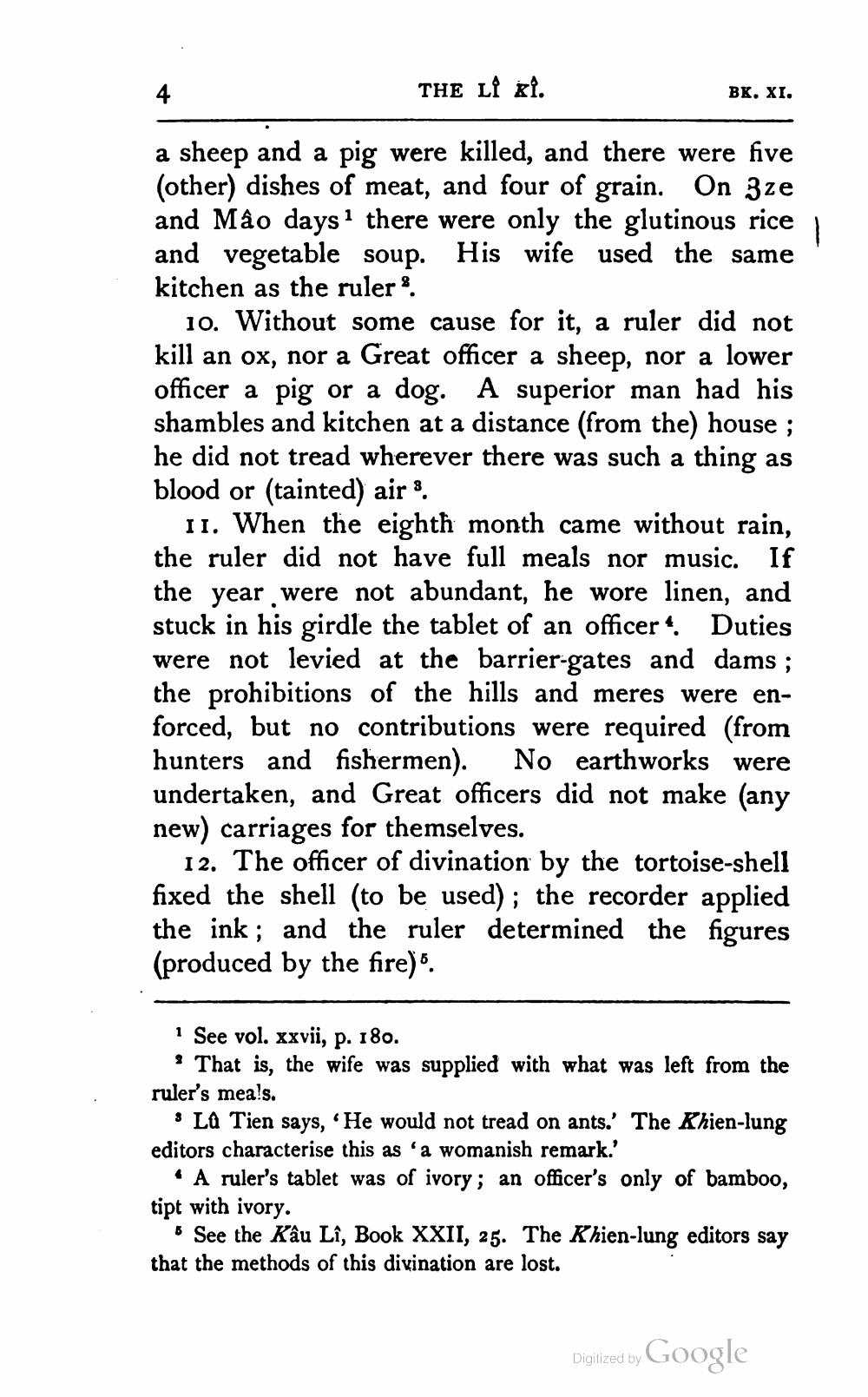________________
THE LÎ xi.
BK. XI.
a sheep and a pig were killed, and there were five (other) dishes of meat, and four of grain. On zze and Mào days there were only the glutinous rice and vegetable soup. His wife used the same kitchen as the rulers.
10. Without some cause for it, a ruler did not kill an ox, nor a Great officer a sheep, nor a lower officer a pig or a dog. A superior man had his shambles and kitchen at a distance (from the) house ; he did not tread wherever there was such a thing as blood or (tainted) air 3.
11. When the eighth month came without rain, the ruler did not have full meals nor music. If the year were not abundant, he wore linen, and stuck in his girdle the tablet of an officer Duties were not levied at the barrier-gates and dams ; the prohibitions of the hills and meres were enforced, but no contributions were required (from hunters and fishermen). No earthworks were undertaken, and Great officers did not make any new) carriages for themselves.
12. The officer of divination by the tortoise-shell fixed the shell (to be used); the recorder applied the ink; and the ruler determined the figures (produced by the fire).
1 See vol. xxvii, p. 180.
* That is, the wife was supplied with what was left from the ruler's meals.
o La Tien says, 'He would not tread on ants. The Khien-lung editors characterise this as 'a womanish remark.'
• A ruler's tablet was of ivory; an officer's only of bamboo, tipt with ivory.
See the Kâu Lî, Book XXII, 25. The Rhien-lung editors say that the methods of this divination are lost.
Digitized by Google




